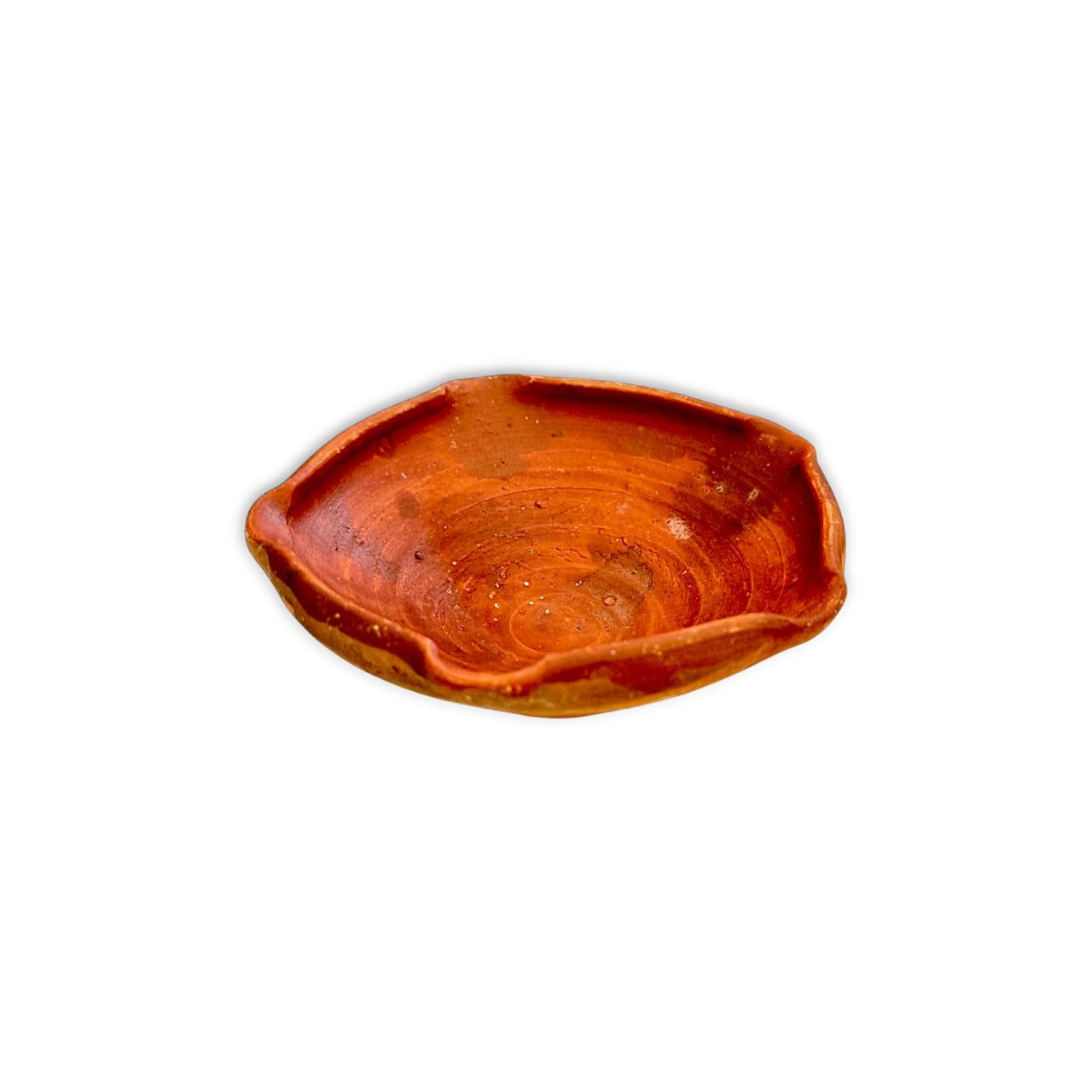
Creating a sacred Dhuni at home lets you delve into a rich spiritual tradition. This guide will help you perform the ritual with reverence for its deep cultural roots, while embracing the convenience of modern resources like online shopping.
Intention and Placement
A Dhuni is more than just fire; it embodies spiritual intention and a connection to the divine. Choose a safe, well-ventilated spot, at least 10 feet from anything flammable, to set up your Dhuni. Good ventilation is especially important if you’re indoors. Think of it as inviting positive energy into a clean, breathable space.
Gathering Your Materials
Having the right materials is key. A heat-proof container or a small, portable metallic plate (copper is auspicious) is ideal. Gather sacred ingredients like sandalwood, frankincense, myrrh, camphor, ghee (clarified butter), and guggal. These can be easily found online from trusted sources like Poojn.in, making it convenient to source authentic Dhuni Samagri. You’ll also need something to ignite the fire safely, like matches or a lighter.

Lighting the Dhuni
Begin by lighting camphor or dry kindling, or use dried cow dung cakes, all imbued with traditional meaning. Offer appropriate materials to the Dhuni, which will be consumed by the flames. Chanting mantras or playing spiritual music can deepen the experience, creating a truly sacred atmosphere. Consider adding a dhuno pot for a more traditional feel.
Building an Outdoor Dhuni Fire Pit
For a permanent outdoor Dhuni:
- Mark and Excavate: Outline the area and dig about 7 inches deep, ensuring a level surface. A diameter of 36-44 inches works well. This creates a dedicated space for your sacred fire.
- The Base: Compact the soil, add a layer of gravel, wet it, and compact it firmly again. This creates a stable and level foundation for your fire pit.
- The First Layer: Carefully place the first row of stones or bricks on the gravel base, making sure they fit snugly together. Use a level to maintain an even height. This forms the structure of your Dhuni.
- Alternative Materials: Paver bricks or trapezoidal pavers can also be used, adding a touch of elegance to your circular pit.
Important Considerations
- Safety First: Always use a fireproof container on a non-flammable surface. Safety is paramount when working with fire.
- Fresh Air: Ensure good ventilation, especially indoors. Open windows or use exhaust fans to allow smoke to dissipate and maintain fresh air circulation.
- Authenticity Matters: Opt for pure, authentic ingredients. The quality of your samagri reflects the reverence of the ritual.
- Shape and Size: While a circular shape is traditional, square or rectangular Dhuni designs are also perfectly acceptable. Choose a size that suits your space and needs.
- Symbolism: The Dhuni is rich in symbolism, representing purification, meditation, and connection with divine energies. It’s a powerful reminder of the sacred in our everyday lives. You can further enhance the atmosphere with a terracotta lamp.
The Narayana Mantras: Chanting for Peace and Prosperity
Narayana Mantras are chanted to invite peace and prosperity into our lives. These mantras, rooted in ancient Hindu scriptures, are associated with Lord Narayana, an incarnation of Lord Vishnu. Different Narayana Mantras serve various purposes. Correct pronunciation and rhythmic chanting are key to maximizing their spiritual benefits. Your intentions and mindfulness while chanting are crucial for their effectiveness.
Understanding the Narayana Mantram
The Narayana Mantram is a cornerstone of Hindu spiritual practice, invoked for divine blessings and protection. It symbolizes cosmic order and balance. Understanding the mantra’s components, including its syllables, deepens its impact. Mental and spiritual preparation before chanting is essential. Choosing the right time and setting can amplify its power. Combining it with other spiritual practices and a mindful lifestyle can further enhance the experience.
Narayana Suktam with Meaning
The Narayana Suktam, a revered hymn from the Yajurveda, is dedicated to Lord Narayana. Its structure and verses are rich in philosophical meaning. A line-by-line interpretation unlocks its deeper teachings. The Suktam holds great significance in Vedic rituals and ceremonies, promoting inner peace and spiritual awakening. Integrating the Narayana Suktam into your daily practice can profoundly deepen your spiritual journey.
Integrating Online Resources for Dhuni Rituals
Online platforms offer easy access to authentic ritual items you’ll need for your Dhuni. From various woods and herbs to a wide array of puja accessories, everything is just a click away. Choosing reputable sellers like Poojn.in ensures you receive genuine, high-quality products. Ordering in bulk saves time and helps maintain a steady supply for your rituals. Online communities also offer support and a space to share experiences related to Dhuni rituals. Video tutorials and virtual workshops can enrich your understanding and practice, creating a beautiful blend of tradition and modern convenience.
How Poojn.in Can Help You Create a Dhuni at Home
Creating a Dhuni at home is a significant ritual in many Hindu homes. It involves burning sacred herbs and woods to purify the environment and invite positive energy. To perform this ritual properly, you need authentic puja samagri. Poojn.in, India’s largest Dashakarma Bhandar, offers a wide selection of high-quality items for your Dhuni.
Essential Items for Your Dhuni
- Sambrani: Known for its soothing fragrance, Sambrani creates a tranquil ambiance. It helps to elevate the spiritual atmosphere of your ritual.
- Dhoop Sticks: These incense sticks help the pleasant aroma linger in your home long after the ritual, creating a lasting sense of peace and purity.
- Cow Dung Cakes: Traditionally used as fuel for the Dhuni, these are a natural and sacred way to sustain the fire.
- Camphor: Used to ignite the fire and keep it burning brightly, symbolizing the spark of divine energy.
- Herbs and Woods: These include sandalwood and other sacred herbs that enhance the purifying effects of the Dhuni, connecting you to ancient traditions.
You can find all these and more on www.poojn.in. Our online store provides detailed descriptions, ensuring you get genuine products directly from trusted sources. For assistance, call us at 03369029784 or WhatsApp us at 9476142738. By choosing Poojn.in, you’re choosing authenticity and reverence, bringing peace and positivity into your home.
Embracing Tradition with Modern Convenience
Creating a sacred Dhuni at home beautifully bridges the gap between ancient traditions and modern life, letting you honor age-old customs while enjoying the conveniences of today. By preparing your Dhuni with care and intention, you’re inviting peace, purification, and a connection to the divine into your home. Drawing on the rich cultural roots of this ritual helps preserve a precious part of Indian heritage. With online resources like Poojn.in, sourcing authentic materials is simplified, ensuring your Dhuni stays true to tradition. This blend of the old and new respects the past while embracing the ease of modern living. As you light your Dhuni, you’re participating in a timeless practice that brings spiritual warmth and cultural richness to your space. Remember, your Dhuni journey is deeply personal and sacred—a beautiful reminder of the divine within and all around us.
Common Questions About Creating a Dhuni at Home
What do I need to create a Dhuni at home? You’ll need items like dried cow dung cakes, camphor, ghee, and incense sticks. A fireproof container and a way to light the fire are also essential.
Is it safe to use a Dhuni indoors? Yes, but prioritize proper ventilation. Open windows or use exhaust fans to clear the smoke and keep the air fresh.
How often should I do a Dhuni ritual? Many perform Dhuni rituals weekly or during festivals. The frequency depends on your personal beliefs and spiritual practice.
What’s the purpose of a Dhuni? A Dhuni purifies the environment, wards off negativity, and enhances spiritual vibrations. It’s a time-honored tradition in many Hindu rituals.
Can I chant the Narayana Mantram during the ritual? Absolutely. Chanting the Narayana Mantram during the Dhuni ritual adds to the spiritual experience, bringing peace and invoking divine blessings.
Is there a specific time for a Dhuni ritual? Mornings and evenings are considered auspicious, but choose a time that resonates with you.
Why is ghee used in a Dhuni? Ghee’s purifying qualities, pleasant aroma, and association with positive energy and divine presence make it a key element in the ritual.


